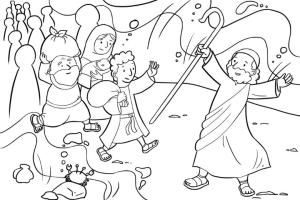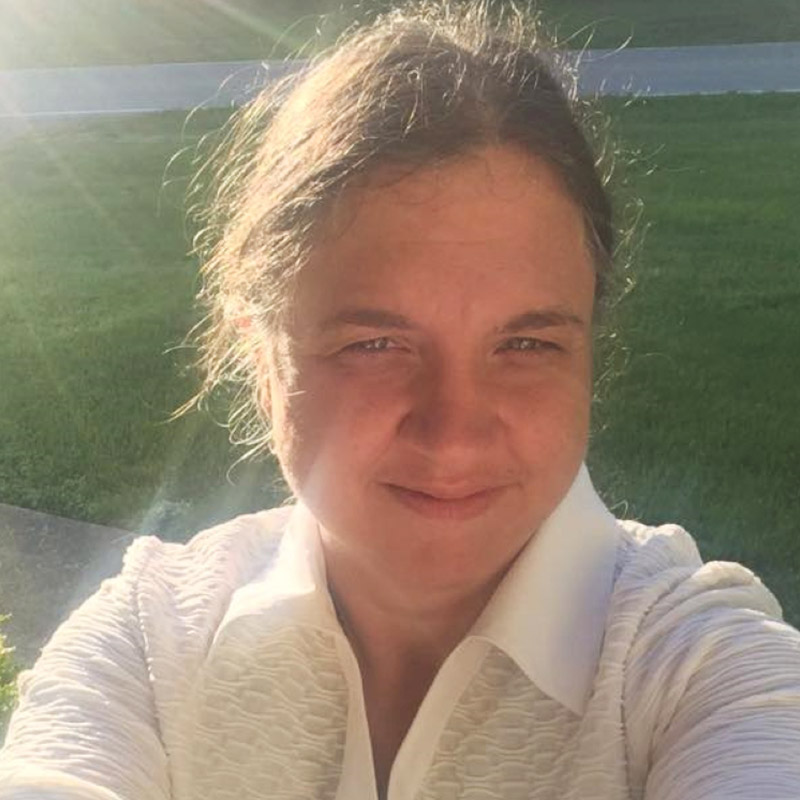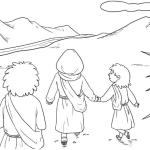
The Exodus story is one of the most captivating narratives in the Bible. It recounts the Israelites’ liberation from slavery in ancient Egypt and their journey to the Promised Land. Amidst the grandeur of this epic tale, there are often unsung heroes whose bravery and resilience shaped the course of history. One such pair of heroic figures in the Exodus story is Shiphrah and Puah, the Hebrew midwives. This article will delve into the remarkable role they played and how their courageous acts impacted the lives of many.
The Role of Shiphrah and Puah in the Exodus Story
Shiphrah and Puah’s role in the Exodus narrative cannot be overstated. As Hebrew midwives, their responsibilities extended far beyond the delivery room. In a time when Pharaoh’s oppressive regime sought to control and weaken the Hebrew population, Shiphrah and Puah found themselves unwittingly thrust into a position of great significance. Their actions not only showcased their bravery and compassion, but also played a pivotal role in the liberation of the Hebrew people.
As midwives, Shiphrah and Puah were charged with the well-being of both mother and child during childbirth. However, their commitment to their profession extended beyond their duty to their patients. In the face of Pharaoh’s decree to kill all Hebrew baby boys, Shiphrah and Puah made the conscious decision to defy the order. Their refusal to carry out such atrocities was a testament to their faith in God, their own moral integrity, and courage in the face of immense pressure.
By choosing to protect the lives of newborn Hebrew boys, Shiphrah and Puah became key players in the unfolding of the Exodus narrative. Their defiance of Pharaoh’s orders allowed the Hebrew population to continue to thrive and grow. This ultimately led to the birth of Moses, who would become the central figure in the liberation of the Hebrew people from slavery in Egypt. Shiphrah and Puah’s actions were not only acts of resistance against a tyrannical regime. They were also acts of compassion and humanity that laid the foundation for the redemption and freedom of the Hebrew people.
The Importance of Midwives in Ancient Egypt
In ancient Egypt, midwives played a fundamental and revered role in the community. These highly skilled women possessed a vast array of knowledge and experience in the art of childbirth and maternal care. They not only delivered babies safely into the world. They also provided invaluable guidance, support, and reassurance to expectant mothers throughout their pregnancy journeys.
The status and respect bestowed upon midwives in ancient Egypt were testaments to their unparalleled expertise. Midwives were considered trusted advisors. They were often sought after for their wisdom and ability to navigate the intricate childbirth process. They were well-versed in the intricacies of prenatal care, thus ensuring the well-being of both mother and baby. Midwives also possessed a deep understanding of herbal remedies and ancient techniques for labor pain management. Often, they employed their skills to alleviate discomfort and to promote a successful delivery. Additionally, midwives were knowledgeable about postnatal care, providing essential guidance on breastfeeding, infant care, and maternal recovery.
The invaluable contributions of midwives extended beyond their immediate roles in childbirth. They served as vital links between the generations, passing down knowledge and traditions from one woman to another. Midwives played a pivotal role in preserving the cultural practices associated with childbirth and infant care. In this way, they ensured that the wisdom of their ancestors was not lost. Their presence brought comfort and reassurance to expectant mothers, fostering a sense of community and support during one of the most transformative periods in a woman’s life. Thus, midwives were indispensable members of society.
The Hebrew Midwives’ Defiance of Pharaoh’s Orders
Pharaoh, the powerful ruler of Egypt who was revered as a god himself, became increasingly alarmed by the rapid growth of the Hebrew population within his kingdom. Fearing that the Hebrews would become too numerous and pose a threat to his reign, he devised a sinister plan to control their numbers. In a cruel and heartless decree, Pharaoh commanded the Hebrew midwives, Shiphrah and Puah, to kill all newborn male infants. This brutal act was intended to suppress the Hebrew population and maintain the Egyptian empire’s dominance.
However, Shiphrah and Puah, guided by their unwavering faith, compassion, and an innate sense of justice, made a courageous choice. They decided to defy Pharaoh’s orders. These remarkable women recognized the inherent value of every innocent life they encountered. They refused to be mere instruments of destruction. Instead, they opted to protect the vulnerable infants under their care. In this act of defiance, Shiphrah and Puah demonstrated immense bravery, as they risked their own lives to preserve the lives of others. Their actions serve as a testament to the power of empathy and faith, as well as the importance of having an unwavering commitment to doing right, even in the face of grave danger.
Shiphrah and Puah as Protectors of Life
Shiphrah and Puah’s unwavering commitment to their faith played a pivotal role in their decision to disobey Pharaoh’s command. Their deep reverence for God and their understanding of the sanctity of life compelled them to prioritize the well-being of the innocent over the demands of a tyrannical ruler. In a society where obedience to authority was paramount, Shiphrah and Puah demonstrated remarkable courage and conviction in their choice to follow a higher moral calling.
Their decision to protect the lives of the Hebrew baby boys was not without its risks. Disobeying Pharaoh’s orders was an act of defiance that could have resulted in severe punishment or even death. However, Shiphrah and Puah’s faith in God’s protection and their unwavering dedication to their profession as midwives empowered them to stand firm in their resolve. They understood that their role as caregivers extended beyond simply delivering babies. It encompassed safeguarding the lives of the vulnerable, regardless of the political climate. By defying Pharaoh’s command, Shiphrah and Puah became beacons of hope, inspiring others to resist oppression. Today, their example reminds us of the power of faith and courage in the face of adversity.
Rewards and Blessings for Shiphrah and Puah
God, in His infinite wisdom, has always been watchful of those who display righteousness and compassion. Shiphrah and Puah, these two remarkable women in the biblical narrative, exemplified these qualities through their selfless acts. Their unwavering commitment to protecting the lives of innocent children did not go unnoticed by the Almighty. Rather, it earned them His favor and blessings beyond measure.
Shiphrah and Puah’s incredible bravery and faithfulness in the face of adversity were rewarded with the gift of motherhood. God, in His ultimate justice, recognized their courage and obedience. He granted them the privilege of experiencing the joys and responsibilities of raising their own families. This divine reward not only highlighted the significance of their actions. It also demonstrated God’s unwavering commitment to those who selflessly devote their lives to the preservation of the lives of others.
The story of Shiphrah and Puah serves as an inspiring reminder of the power of righteousness and the profound impact our actions can have on others around us. The midwives’ unwavering dedication to protecting the lives of innocent children not only earned them God’s favor. It also transformed their own lives in unimaginable ways.
Lessons from Shiphrah and Puah’s Heroic Acts
The heroic acts of Shiphrah and Puah, as recorded in this biblical account, serve as a timeless reminder of the power of courage and compassion. These two ancient Egyptian midwives defied the orders of Pharaoh and risked their own lives to save the lives of innocent Hebrew baby boys. Their unwavering commitment to justice and their fear of God enabled them to rise above the oppressive regime and protect the vulnerable.
The story of Shiphrah and Puah resonates with us today, as we continue to face various forms of injustice and oppression in our modern world. Their example challenges us to stand up against injustice, even when it seems daunting or unpopular. It reminds us that we have a responsibility to protect and advocate for those who are marginalized or oppressed. Their dedication to the well-being of others above their own comfort teaches us the importance of selflessness and empathy, values that are sorely needed in our society. By reflecting on the implications of their story, we can draw valuable inferences that can guide our own actions to make a positive difference in others’ lives.
Shiphrah and Puah as Inspirational Figures
Shiphrah and Puah may not be as well-known as other characters in the Exodus story, but their impact is undeniable. Their courageous acts as midwives not only saved countless lives. They also shaped the destiny of an entire nation. Their unwavering faith and fear of God serve as a reminder that even in the face of adversity, we can find strength and courage. Shiphrah and Puah’s story continues to inspire generations, reminding us that heroism can be found in the most unexpected and ordinary places.
Reflect on the acts of heroism displayed by Shiphrah and Puah. How can you apply their commendable examples of justice, fear of God, and dedication to protecting the vulnerable to your own life? Share your thoughts and insights in the comments.














